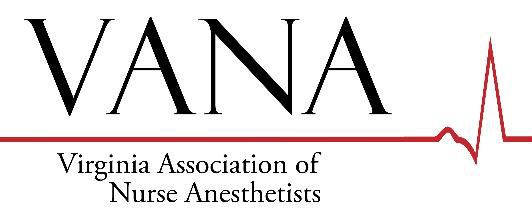Remembering Goldie Brangman, the CRNA who helped save Dr. Martin Luther King, Jr.
Note: This column originally published in the Richmond-Times Dispatch on Jan. 16, 2022.
By Jean Snyder
Dr. Martin Luther King, Jr., was at a Harlem event for the launch of his first book, Stride Toward Freedom, when he was stabbed in the chest with a letter opener by a mentally ill woman on December 20, 1958.
Rushed to Harlem Hospital in New York City, King was met by the doctors and anesthesia team – including nurse anesthetist Goldie D. Brangman – who would save his life. A Certified Registered Nurse Anesthetist (CRNA), Brangman would go on to become the only African American CRNA to serve as president of the American Association of Nurse Anesthetists (AANA), a post she held from 1973-74.
Brangman graduated from Harlem Hospital School of Nursing in 1943 and was eager to attend formal anesthesia school at a time when nurses were being trained to replace male physicians called up to serve in WWII. But many schools were not accepting Black applicants, so she stayed at Harlem Hospital to study there. Brangman and a colleague attended classes during the day and worked in the evening, teaching other nurses as they gained more knowledge. By the time Brangman retired, she had provided anesthesia care for Harlem Hospital patients for nearly 65 years.
In 1949, Brangman established the Harlem Hospital Nurse Anesthesia program and served as its director until her retirement in 1985. True to her vision of welcoming a diverse group of nurses to the anesthesia field, Brangman’s first class included an Irish Catholic student, a Jewish student with a doctoral degree, two students from Africa, a Filipino student and a Korean student, with the rest being Caucasian, Hispanic, and Black students from New York and New Jersey.
Today, thousands of highly trained nurses with advanced degrees work across the nation and in our Armed Forces as Certified Registered Nurse Anesthetists, or CRNAs. If you have had surgery or delivered a baby, a CRNA likely was involved in your care. CRNAs represent more than 50% of the anesthesia workforce and are specialists in airway management, intubations, and advanced patient assessments. CRNAs provide high-quality, cost-effective anesthesia care while maintaining an excellent patient safety record. CRNAs enter the workforce with a master’s or doctoral degree from an accredited program and are qualified to administer anesthesia to patients in any health care setting, including hospitals, surgical centers and veterans’ facilities.
CRNAs are the backbone of the anesthesia care administered in Virginia and often are the only providers in rural Virginia. For more than 100 years, Virginia nurse anesthetists have provided high quality and safe anesthesia care to patients across the Commonwealth and in every military branch, where they are the primary providers of anesthesia care on the military frontlines, Navy ships, and aircraft evacuation teams.
Throughout the COVID-19 pandemic, the federal government and several governors across the country have removed cumbersome barriers to letting CRNAs practice without physician overview. CRNAs have been instrumental in helping overworked and stressed healthcare systems deal with the COVID pandemic, bringing their critical care skills and airway and ventilator expertise to patient care. It is important to maintain this commonsense solution to improve access and reduce costs.
Today, Dr. King’s impact on the civil rights movement is honored in the holiday we celebrate on the third Monday of January, Martin Luther King Jr. Day. Brangman continues to serve as a role model for CRNAs across the country, not only for helping to save Dr. King’s life but for her life of anesthesia excellence and focus on diversity. Brangman passed away on February 9, 2020, at the age of 102. As we honor Dr. King, let us not forget those whose lives intersected his and were visionaries in their own way.
The Virginia Association of Nurse Anesthetists remembers and honors Brangman for her contributions for not only caring for Martin Luther King, Jr. but her dedication to the field of nurse anesthesia and advancing the nurse anesthesia profession for CRNAs of color.
Jean Snyder DNAP, CRNA is the immediate past president of the Virginia Association of Nurse Anesthetists.

